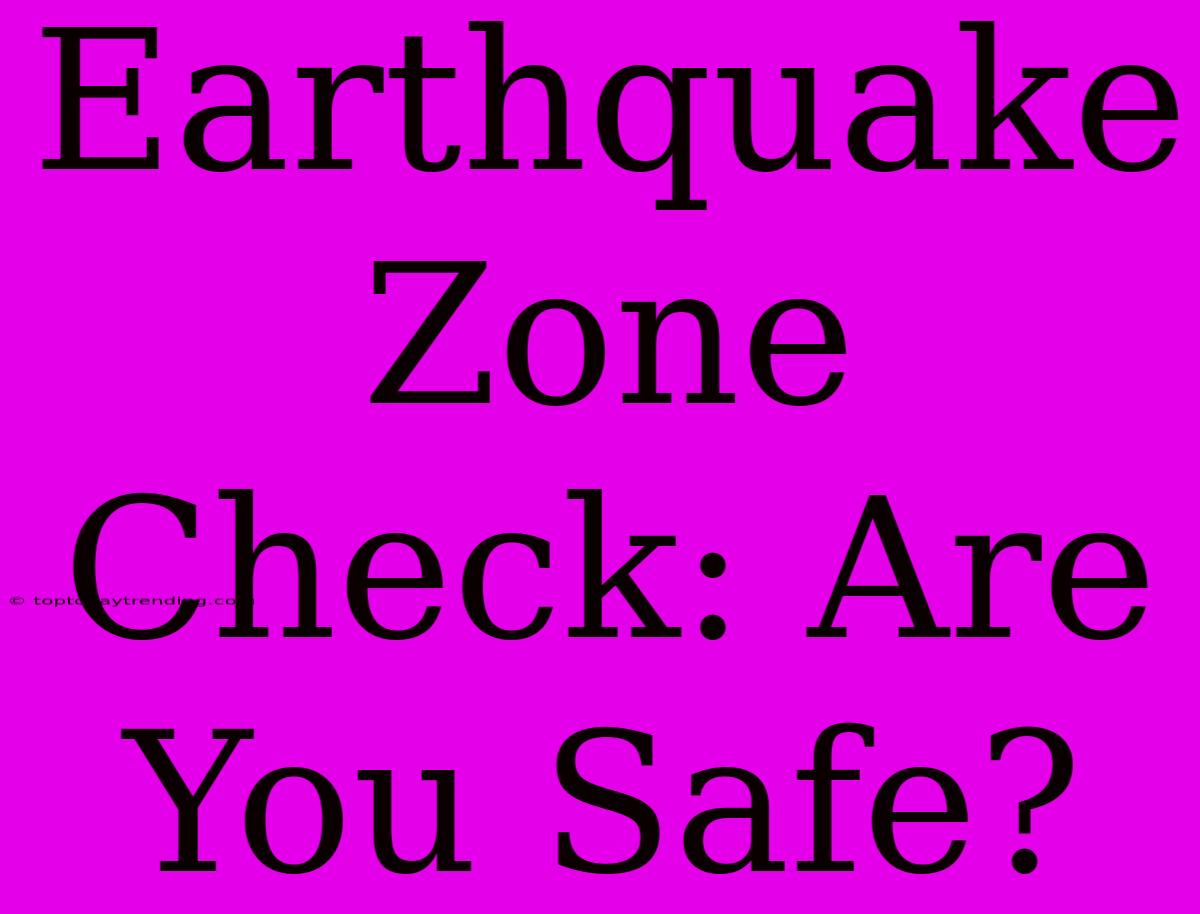Earthquake Zone Check: Are You Safe?
Living in an earthquake-prone area can be nerve-wracking. But knowing your risk and taking steps to prepare can make a big difference in your safety.
Earthquakes are a natural phenomenon that can cause significant damage and devastation. They occur when the Earth's tectonic plates shift and collide, releasing energy in the form of seismic waves. These waves can shake the ground violently, causing buildings to collapse, roads to crack, and landslides to occur.
The good news is that you can take steps to protect yourself and your family. The first step is to understand your risk.
Understanding Your Risk
1. Know Your Earthquake Zone:
- The United States Geological Survey (USGS) has a detailed map of earthquake hazard zones in the United States. You can find this map and more information on their website:
- Other countries have similar resources. Search online for "earthquake hazard map" followed by your country's name.
2. Research Local History:
- Find out if your area has experienced earthquakes in the past.
- Look for records of past earthquake intensity and damage.
- This information can give you a better idea of the potential risks you face.
Taking Action to Prepare
1. Secure Your Home:
- Secure heavy objects: Anchor heavy furniture, bookcases, and mirrors to walls.
- Reinforce shelves: Use brackets or straps to prevent shelves from falling.
- Secure light fixtures: Make sure light fixtures are securely attached to the ceiling.
- Check for hazards: Identify potential hazards like gas lines, electrical wiring, and water heaters.
- Create a safe space: Identify a safe spot in your home that's away from windows and heavy objects. This could be a doorway or under a sturdy table.
2. Create an Emergency Kit:
- Include essential supplies: Water, non-perishable food, first-aid kit, flashlight, batteries, radio, medications, copies of important documents, and cash.
- Plan for different scenarios: Consider the needs of everyone in your household, including pets.
- Practice with your family: Have a plan for how you'll communicate and meet after an earthquake.
3. Learn Basic Earthquake Safety:
- Drop, cover, and hold on: During an earthquake, drop to the ground, cover your head and neck with your arms, and hold on to a sturdy object.
- Stay away from windows and heavy objects.
- Be prepared for aftershocks.
- Know how to shut off gas, water, and electricity.
4. Get Involved:
- Learn CPR and first aid.
- Join your local emergency preparedness group.
- Participate in earthquake drills.
5. Stay Informed:
- Follow local news and emergency broadcasts.
- Sign up for alerts from your local emergency management agency.
- Keep a NOAA weather radio on hand.
Living in an earthquake zone doesn't have to be a constant source of anxiety. By understanding your risk, taking steps to prepare, and staying informed, you can increase your chances of staying safe during an earthquake.

